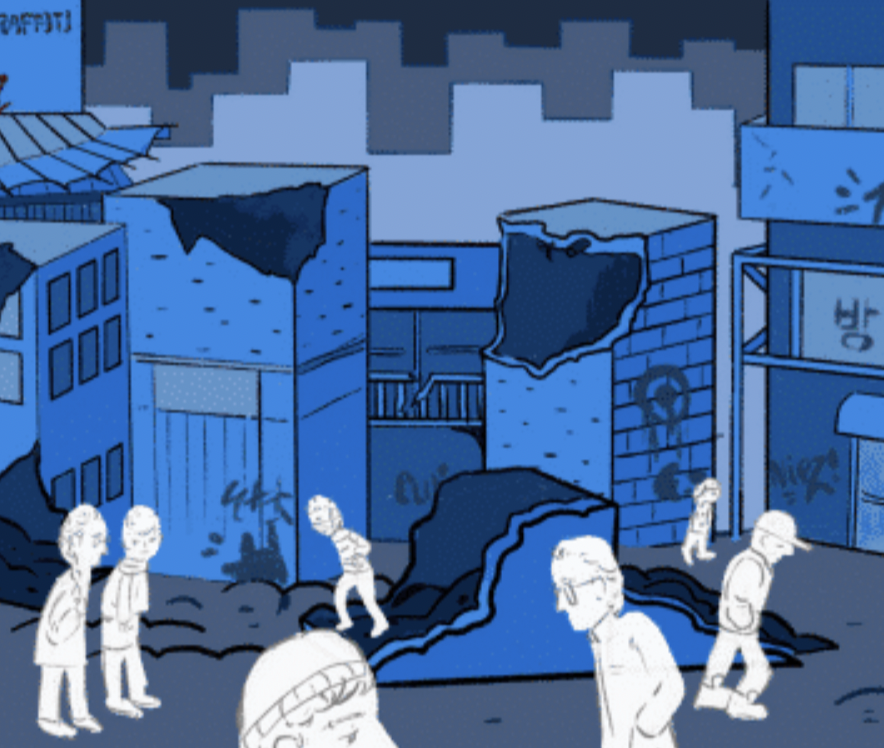I haven’t had a representative in the House of Representatives since January 3, and there’s nothing I can do about it. Allow me to explain the situation: the results of this past election have been disputed for months in North Carolina’s ninth congressional district, with the “winning” candidate, Republican pastor Mark Harris, accused of supporting racial voter suppression for his campaign’s benefit. As such, an investigation has been launched into the election and no official winner has been named. It’s unclear how much longer I won’t be able to call my representative when I want to voice my opinion on potential legislation or important issues that affect me and the 800,000 other inhabitants of my congressional district.
My state government — particularly the majority Republicans — refuse to let go of their increasingly tight grip on who makes the decisions for the rest of the state, constantly coming up with new ways to consolidate power. As of now, it doesn’t look like much progress will be made: the Republicans in the State government refuse to collaborate to reach a fair, just consensus on the appropriate reaction to the investigation and the vacancy in the congressional seat. It is unacceptable and unjust for North Carolina Republicans to use their power to give certain citizens, especially certain ethnic groups, less of a voice through techniques such as suppressing certain voters, undercutting the governor’s power, gerrymandering, and of course, the refusal to address the current situation with the representative.
The entire election scandal stems from the longtime North Carolina issue of voter suppression, especially suppression that targets liberal African-Americans. For years, the state government has tried to pass legislation that disadvantages black voters — with varying degrees of success — in order to maintain their Republican supermajority in both the state Senate and House of Representatives. For example, in 2013, they passed the strictest voter ID laws in the country. Courts later found that this law had chiefly been created not for increased security with voting but because the government had discovered that African-Americans are disproportionately more likely to arrive at polls without photo IDs. Similarly, courts found that the removal of certain early voting Sunday dates deliberately discriminated against predominantly black churches’ “Pews to the Polls” events. And just a few months ago, congressional candidate Mark Harris hired someone to collect and get rid of black absentee ballots, thereby skewing the election results. The Republicans in the N.C. General Assembly are so desperate to hold onto their power that they have resorted to attempting to limit certain citizens’ constitutional rights to vote; this is completely unfair and creates election results that do not represent the state’s people and their wide-ranging needs.
At first, this election issue may seem to be a relatively easy fix. Can’t the courts simply intervene as they have before with similar issues of voter suppression, striking down the election results and announcing new plans to fill the vacant House seat? It’s not that simple, n North Carolina, everything that deals with election results must go through the state’s Board of Elections. A hearing by this board was scheduled for the middle of January. However, this year, each member of the five-person board is to be replaced in accordance with legislation, requiring nominees for new members from each party in order to go forward with the election investigation. But the North Carolina Republicans are refusing to name new members, thus creating an indefinite standstill in the process for justice and continuing to leave the ninth district unrepresented.
It’s not completely inconceivable that state Republicans assume they can keep their hold on the results, though, considering their success with past attempts to concentrate as much power as possible in their House and Senate chambers. Over the past few years, the North Carolina governor has become one of the five constitutionally weakest governors in the country. When current governor Roy Cooper was elected in 2016, the General Assembly legislators immediately passed bills that limited the Democrat’s power. They reduced his number of appointments from 1,500 to 300 and gave him less power over judicial nominations, creating a doorway for Republicans to appoint fellow Republicans to the courts, the governor’s Cabinet, and the University of North Carolina’s Board of Trustees. This kind of infiltration is allowing legislators to get away with more and more questionable actions — such as race-based voter suppression — without governor intervention. Instead of attempting to reach a consensus across party lines with the governor, the North Carolina legislators are only pulling themselves further away from agreement and any sort of progress within the state.
Even the actual representatives, not just their viewpoints, are skewed due to extreme partisan and racial gerrymandering. In 2016, ten out of thirteen N.C. House seats were secured by Republicans, despite the party only receiving 53% of the popular vote. The state legislators have since admitted to purposefully cramming state Democrats into just a few districts, giving Republicans electoral power everywhere else. Furthermore, before the partisan gerrymandering scandal was uncovered, North Carolina had issues with race-based gerrymandering: in 2011, the Supreme Court struck down maps that stuck most black voters in just two congressional districts. It is unacceptable for the legislature to engineer maps for their own benefit while they take away the voice and power of minority groups.
It’s undeniable: North Carolina legislators have a serious problem with power. They’re taking it away from everyone who could pose a threat to them and their goals — the governor, various state boards, and, most importantly, the people. These desperate power grabs cannot continue, as they will only strip away more rights away from black voters and other minority groups. The North Carolina General Assembly must take a step back and listen to its constituents. There’s still a vacancy in the House of Representatives; 800,000 people still don’t have a representative. The Republican legislators need to sacrifice their ego and address these injustices for the good of all North Carolinians.





